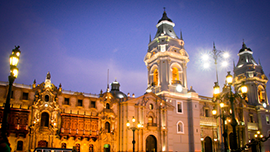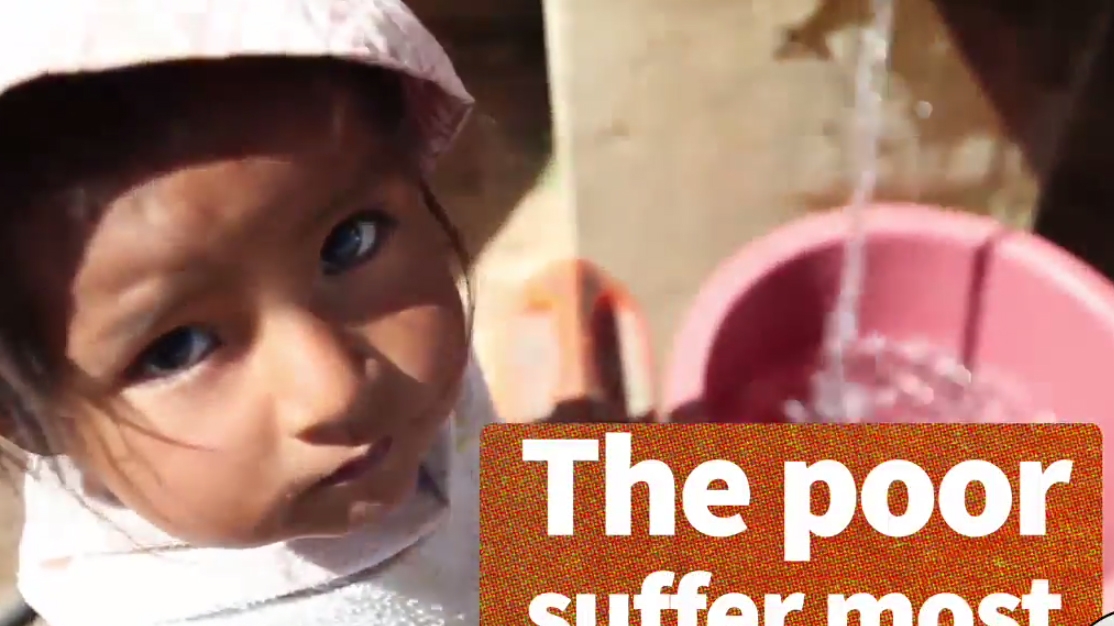The World Bank Group plays an important role in financing climate action in developing countries, many of which are involved in the UN climate negotiations in Lima, Peru. In a speech ahead of the climate talks, World Bank Group President Jim Yong Kim discussed that role and what will be needed on the path to a new international climate agreement in 2015. Learn more about the World Bank Group's work and its involvement in the 20th Session of the Conference of the Parties to the United Nations Framework Convention on Climate Change (COP20):
Blog Post (Dec. 12)
Across the Conference, We Saw Extraordinary Energy & Commitment to a Cleaner Future
In the corridors and sessions at the UN climate talks, we saw extraordinary energy: material action as the financial sector starts to transform how it thinks about long-term risk; coalitions working together on tax reform, regulatory reform, and putting a price on carbon; and countries saying they have been able to clean up their regulatory framework and put themselves in a position to grow, says Vice President Rachel Kyte.
Blog Post (Dec. 11)
We Can't Delay Investing in Resilience – the Risks Are Too High
With science showing the world is already locked into about 1.5°C warming, adaptation and development are inextricably linked. Building resilience to the effects of climate change is essential as we work to bring down emissions, writes Vice President Rachel Kyte. Read more
Blog Post (Dec. 10)
Testing Carbon Pricing in Brazil: 20 Companies Join an Innovative Simulation
A new voluntary emissions trading simulation is using live corporate data, auctioning and bonds markets, and fines for non-compliance to engage 20 Brazilian companies in discussions around how a robust cap and trade market could be designed and implemented, writes Nicolette Bartlett of the Prince of Wales's Corporate Leaders Group. Read more
Blog Post (Dec. 10)
Climate Finance: The Public Sector Can't Do This Alone
Globally, climate finance flows today are less than half of the amount considered necessary. The public sector will never be able to meet the full need, but it can help unlock private investment. Doing so means giving investors the confidence that the right policies are in place to make long-term investments for the climate, writes the IFC's Christian Grossman. Read more
Blog Post (Dec. 9)
High-Level Climate Talks Open with New Sense of Urgency, Clarity & Movement on Carbon Pricing
The high-level segment of the UN climate talks is starting in Lima, and there is a different mood here than in previous climate talks, with both a sense of urgency and clarity of objective, says Vice President Rachel Kyte. There has also been a lot of conversation around carbon pricing, with the question now being how quickly we can move. Read more
Blog Post (Dec. 9)
Pension Fund CEO: One of the Biggest Risks in a Long-Term Investor's Portfolio Is Carbon
Mats Andersson, CEO of Swedish pension fund AP4, talks about the importance of transparency for investors and the impact of a carbon price in shifting investment to cleaner, more sustainable development. Read more
Feature (Dec. 8)
Jim Kim on Transforming Economies to Reach Zero Net Emissions
Economic policy will be the key to mobilizing the global response necessary to reduce emissions to net zero before 2100 and combat climate change, World Bank President Jim Yong Kim says in an agenda-setting speech outlining the path to a 2015 climate agreement in Paris. Read more | Speech | Video
Blog Post (Dec. 8)
Québec Premier: Carbon Pricing Tells Businesses They Have a Role in Fighting Climate Change
Québec Premier Philippe Couillard, whose Canadian province just held its first joint auction with the U.S. State of California, talks about the value of a price on carbon in building a cleaner economy. Read more
Blog Post (Dec. 7)
Climate-Smart Management for Farms, Forests and Everything in Between
Adaptation-based mitigation is a “win-win” approach that combines measures that can be taken to strengthen resilience to climate change with activities that help bring carbon out of the atmosphere, writes Diji Chandrasekharan Behr. Read more.
Blog Post (Dec. 6)
To Get to Net Zero Emissions, We Need Healthy Landscapes
The forestry, agriculture, and land-use sector is both a contributor to global emissions and a powerful emissions sink that can absorb carbon dioxide, providing a pathway to negative emissions. Healthy landscapes are critical to keeping rising temperatures in check, writes Vice President Rachel Kyte. Read more
Feature (Dec. 4)
Fighting Climate Change & Poverty at the Same Time
As climate change worsens, eradicating poverty will become more difficult. We have a short window of time to put in place the climate and social protection policies that can slow climate change while also protecting the poor. Read more
Blog Post (Dec. 2)
Scaling Up Climate Action – Starting Now
The UN climate conference is underway in Lima, with negotiators preparing for an international agreement in 2015. Vice President Rachel Kyte writes about the shift toward substantive action and increasing understanding of the unacceptable risks posed by climate change. Read more
Blog Post (Dec. 1)
Why We’re Making a Stand for Resilient Landscapes
The World Bank Group and partners are launching a new Global Alliance for Resilient Landscapes during the climate conference in Lima to promote and scale up innovative work in sustainable land management, writes Magda Lovei. Read more
Feature (Nov. 23)
World Is Locked into 1.5°C Warming & Risks Are Rising, New Climate Report Finds
The third report in the Turn Down the Heat series explores the impact of a warming world on agricultural production, water resources, ecosystem services, and coastal vulnerability across three regions: Latin-America and the Caribbean, Middle East and North Africa, and Eastern Europe and Central Asia. It also finds the world is already locked into about 1.5°C warming, and worse without concerted action to lower emissions. Read more | Report Series | Infographic

